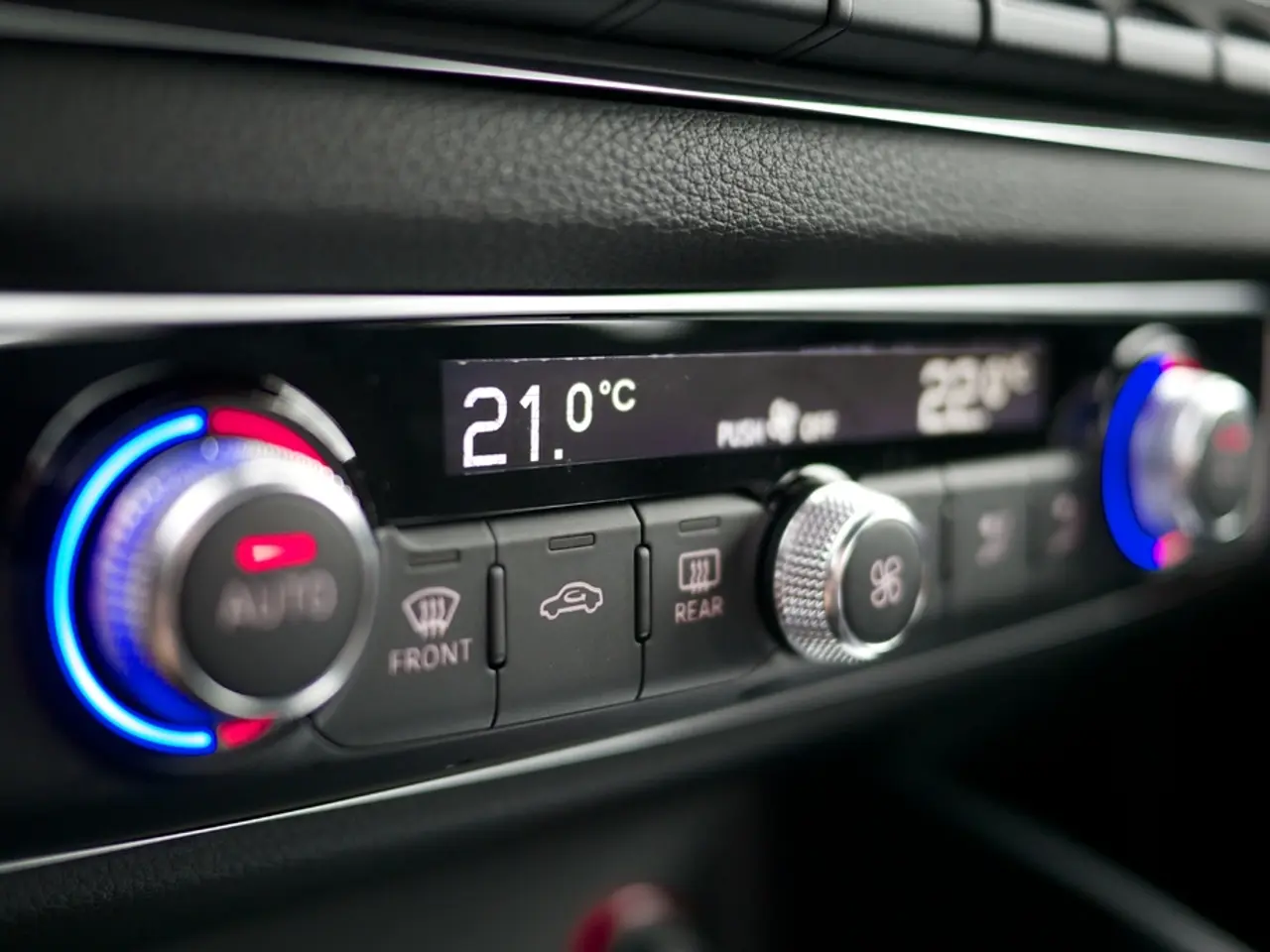"Is Toyota Capable of Outperforming Tesla? New Head of BEV Division Expresses Determination"
**Toyota Embraces Flexible Approach Towards Carbon Neutrality**
Toyota, the renowned automotive giant, is taking significant strides in its pursuit of reducing carbon emissions, with a focus on the present rather than the future. The company's leadership, led by Chairman Akio Toyoda, has outlined a vision that emphasises flexibility and adaptability in response to varying regional energy infrastructures.
During a recent meeting, the head of Toyota's new unit, Masahiro Yamamoto, shared his vision for the team formed in May. Yamamoto thanked the investors for their comments, stating that they lead to kaizen (continuous improvement). The discussions behind the shareholder proposal, which was put forth by a Danish pension fund and other European institutional investors, were held between Toyota and the investors.
The proposal sought to amend Toyota's Articles of Incorporation to include an annual review and report on Toyota's lobbying activities and alignment with the Paris Agreement's global framework for tackling climate change. However, the majority of shareholders voted to reject this proposal.
Toyota's strategy for sustainable transportation is multifaceted, focusing on both hybrid and hydrogen technologies, alongside electric vehicles (EVs), to adapt to diverse market conditions and infrastructure limitations. Hybrid vehicles are seen as a critical component in regions where fossil fuels dominate the energy grid, as they can offer better carbon reduction compared to EVs in these areas.
The company is also exploring alternative technologies, such as hydrogen combustion engines. These engines aim to utilise existing engine technology with minimal modifications to achieve carbon neutrality and deliver high power output comparable to gasoline engines.
Chairman Akio Toyoda has emphasised that carbon neutrality is not just about cars, but the overall picture of energy production, transportation, and use. He suggests that in regions heavily reliant on fossil fuels, hybrids might be more effective in reducing carbon emissions than EVs, as producing and charging EVs could paradoxically increase emissions.
Toyota's board of directors, executive team, and 370,000 employees are committed to keeping shareholders informed of their progress in introducing more electrified vehicles. The company hopes that shareholders will continue to follow their efforts in this regard.
The meeting's agenda included Toyota's first shareholder proposal in 18 years, which centred around the continued use of internal combustion engines (IC engines) and carbon neutrality. During the nearly two-hour meeting, Toyota's leaders fielded 11 questions from shareholders.
Denmark, with its abundance of renewable energy, serves as a contrast to the areas Toyota is addressing. As a global company, Toyota is focusing on regions without electricity or charging facilities, emphasising the importance of a diverse range of options for carbon neutrality.
Despite the rejection of the shareholder proposal, Toyota remains dedicated to its goal of carbon neutrality and is working hard to introduce more electrified vehicles. The company's Accounting Group Chief Officer, Masahiro Yamamoto, visited investors to engage in dialogue, further demonstrating Toyota's commitment to transparency and continuous improvement.
- Toyota's strategic approach towards carbon neutrality encompasses various sectors, including the automotive, technology, finance, and transportation industries, as they aim to develop hybrid, hydrogen, and electric vehicles to adapt to diverse market conditions and infrastructure limitations.
- Recognising the importance of energy production and use in achieving carbon neutrality, Toyota's vision extends beyond vehicles, reaching into the realms of energy production and distribution, with a focus on regions heavily reliant on fossil fuels, where hybrids might be more effective in reducing carbon emissions compared to electric vehicles.




